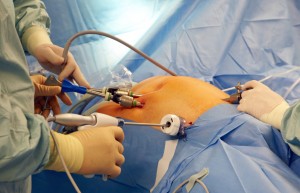Gynecological & Obstetric Surgery its Complications and Healthy Outcomes!!

What is a high-risk pregnancy?
A high-risk pregnancy is one in which some condition puts the pregnant mother or her baby at a higher risk for complications during pregnancy and childbirth.
When should a woman consult a high risk pregnancy specialist?
Before pregnancy – The specialist can help identify factors that increase the likelihood of a high-risk pregnancy and advise her to plan a pregnancy during ideal conditions.
- During pregnancy – To help plan a course of action to address pre-existing conditions or conditions affecting the mother or fetus that develop during the ongoing pregnancy.
- After delivery – To assist complications that may develop, such as excessive bleeding

What are some “Good practice points” before planning pregnancy?
- One should start with folic acid 5 mg per day at least one month prior to planning the pregnancy
- Get one’s immune status checked for various conditions : German measles (rubella), hepatitis B, chicken pox, tetanus. If not adequately covered with vaccinations or natural immunity this is an appropriate time to get oneself vaccinated.
- One should get oneself screened for thalessemia trait, diabetes mellitus, anemia, thyroid dysfunction, high blood pressure
- Stop or reduce the intake of alcohol and /or smoking or any other substances being abused
- One should consult a doctor if a medication is being used regularly because some drugs may have a harmful effect on the developing baby and would need to be stopped or changed before planning pregnancy
- Yes, some risk factors may develop during pregnancy as it advances eg. bleeding during pregnancy, baby suspected of not growing enough, high blood pressure, diabetes etc
- An initial ultrasound is carried out at the fist antenatal visit to confirm the pregnancy, see if it is in the right place and for dating the pregnancy
- A blood test (First trimester screen) and a special ultrasound ( NT scan ) are then recommended at the end of the third month for early detection of babies with Down’s syndrome and some other genetically abnormal babies. If this opportunity is missed a blood test can also be done at 41/2 to 5 months and the risk assessed
- A targetedultrasound is carried out at 18-20 weeks of pregnancy to look for baby’s structural development and pick up birth defects if any.
- Subsequent ultrasounds and other tests may be needed to assess the growth of the baby depending on your doctor’s advise
Share your knowledge on Surgery and many more topics. Join us at our event SURGICAL NURSING 2018 present your work or submit your papers/research to get published globally.
For more details visit our page @ https://surgical.nursingconference.com/abstract-submission.php
No comments:
Post a Comment